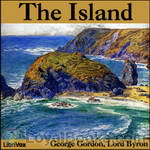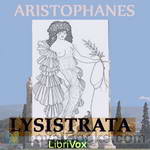|
Books Should Be Free Loyal Books Free Public Domain Audiobooks & eBook Downloads |
|
|
Books Should Be Free Loyal Books Free Public Domain Audiobooks & eBook Downloads |
|
Plays |
|---|
|
Book type:
Sort by:
View by:
|
By: Bernard Shaw (1856-1950) | |
|---|---|
 Captain Brassbound's Conversion
Captain Brassbound's Conversion
| |
 The Inca of Perusalem
The Inca of Perusalem
| |
 Annajanska, the Bolshevik Empress
Annajanska, the Bolshevik Empress
| |
 O'Flaherty V.C. : a recruiting pamphlet
O'Flaherty V.C. : a recruiting pamphlet
| |
By: Richard Harding Davis (1864-1916) | |
|---|---|
 Miss Civilization
Miss Civilization
Miss Civilization, a one act comedy, tells the story of a young woman who matches wits with three burglars attempting to rob her house. | |
By: Lord George Gordon Byron (1788-1824) | |
|---|---|
 Manfred
Manfred
Manfred is a dramatic poem in three acts by Lord Byron, and possibly a self confessional work. A noble, Manfred, is haunted by the memory of some unspeakable crime. In seeking for forgetfulness and oblivion, he wanders between his castle and the mountains. He has several encounters with the people who try to assist him, as well as spirits that rule nature and human destiny. The poem explores themes of morality, religion, guilt and the human condition. | |
 The Island
The Island
Written late in his career, Byron's narrative poem The Island tells the famous story of the mutiny on board the Bounty, and follows the mutineers as they flee to a South Sea island, "their guilt-won Paradise." | |
By: Gertrude Stein (1874-1946) | |
|---|---|
 Geography and Plays
Geography and Plays
Geography and Plays is a 1922 collection of Gertrude Stein's "word portraits," or stream-of-consciousness writings. These stream-of-consciousness experiments, rhythmical essays or "portraits", were designed to evoke "the excitingness of pure being" and can be seen as literature's answer to Cubism, plasticity, and collage. Although the book has been described as "a marvellous and painstaking achievement in setting down approximately 80,000 words which mean nothing at all," it is considered to be one of Stein's seminal works. | |
By: Anton Chekhov (1860-1904) | |
|---|---|
 Swan Song
Swan Song
In 'The Swan Song' an aging actor reminisces about his life and the parts he's played. The piece takes a tragic look at ambition and the sacrifices that must be made in order to succeed. Chekhov’s ability to capture and explore human nature and experience is showcased here. | |
 Ivanov
Ivanov
Nicolai (anglicised Nicholas in this translation) Ivanov, a middle-aged public servant, is unhappy. His wife Anna, disinherited by her family after converting from Judaism, is dying of tuberculosis. He is deeply in debt. And his best friend’s daughter is infatuated with him. Comedy and tragedy ensue in truly Chekhovian fashion. An example of the young Chekhov’s maturing style, Ivanov is an early harbinger of themes that would recur throughout his work. | |
By: Jerome K. Jerome (1859-1927) | |
|---|---|
 The Master of Mrs. Chilvers
The Master of Mrs. Chilvers
| |
By: August Strindberg (1849-1912) | |
|---|---|
 Countess Julie
Countess Julie
August Strindberg’s naturalistic one-act drama has only three characters: Julie, a passionate young noblewoman; Jean, her father’s ambitious valet; and Kristin, the cook, who is also Jean’s fiancee. The play is set on Midsummer Eve, when everyone is reveling, and Julie and Jean get a bit too intimate – with tragic results. | |
 Creditors
Creditors
Creditors is an 1889 tragicomedy by August Strindberg that plumbs the depths of the twisted triangular relationship between Tekla, her husband Adolph, and her ex-husband Gustav. | |
 The Road to Damascus
The Road to Damascus
| |
 Plays: Comrades; Facing Death; Pariah; Easter
Plays: Comrades; Facing Death; Pariah; Easter
| |
 Master Olof : a Drama in Five Acts
Master Olof : a Drama in Five Acts
| |
 Lucky Pehr
Lucky Pehr
| |
By: Arthur Schnitzler (1862-1931) | |
|---|---|
 The Lonely Way—Intermezzo—Countess Mizzie Three Plays
The Lonely Way—Intermezzo—Countess Mizzie Three Plays
| |
By: Gotthold Ephraim Lessing (1729-1781) | |
|---|---|
 Nathan the Wise; a dramatic poem in five acts
Nathan the Wise; a dramatic poem in five acts
| |
By: Robert Browning (1812-1889) | |
|---|---|
 A Blot in the 'Scutcheon
A Blot in the 'Scutcheon
| |
By: Aeschylus (525/524 BC - c. 455/456 BC) | |
|---|---|
 The Oresteia
The Oresteia
The Oresteia is a trilogy by Aeschylus, one of the foremost playwrights of ancient Greece. It encompasses three plays: Agamemnon, The Libation Bearers, and The Furies. It tells the tragic tale of the House of Atreus, whose inhabitants have been cursed and are doomed to play out their bloody, vengeful destinies. At the beginning of the first part, the Trojan War has ended and the Greek general, Agamemnon, is returning victorious to his wife Clytemnestra. Yet she finds it difficult to forgive his sacrifice of their daughter, Iphigenia, who was killed to ensure the Greek fleet fair winds in their voyage to Troy... | |
By: John Webster (c.1580 - c.1634) | |
|---|---|
 The Duchess of Malfi
The Duchess of Malfi
John Webster's bloody Jacobean tragedy exposes the decadence of the Italian court. The virtuous Duchess of Malfi, a young widow, secretly marries her steward Antonio, and is subsequently persecuted by her brothers: the sexually obsessed and eventually mad Ferdinand, and the corrupt Cardinal. | |
By: Euripides (480-406 BC) | |
|---|---|
 The Bacchae
The Bacchae
This tragedy is based on the mythological story of King Pentheus of Thebes and his mother Agave, and their punishment by the god Dionysus (who is Pentheus' cousin) for refusing to worship him. | |
 The Trojan Women
The Trojan Women
Euripides' play follows the fates of the women of Troy after their city has been sacked, their husbands killed, and as their remaining families are about to be taken away as slaves. However, it begins first with the gods Athena and Poseidon discussing ways to punish the Greek armies because they condoned Ajax the Lesser for dragging Cassandra away from Athena's temple. What follows shows how much the Trojan women have suffered as their grief is compounded when the Greeks dole out additional deaths and divide their shares of women. | |
By: Ben Jonson (1572-1637) | |
|---|---|
 Volpone, or, The Fox
Volpone, or, The Fox
Volpone is a comedy by Ben Jonson first produced in 1606, drawing on elements of city comedy and beast fable. A merciless satire of greed and lust, it remains Jonson's most-performed play, and it is among the finest Jacobean Era comedies. Volpone is a Venetian gentleman who pretends to be on his deathbed, after a long illness, in order to dupe Voltore, Corbaccio, and Corvino, three men who aspire to inherit his fortune. In their turns, each man arrives to Volpone’s house bearing a luxurious gift, intent upon having his name inscribed to the will of Volpone, as his heir... | |
 Every Man in His Humor
Every Man in His Humor
| |
 Epicoene: Or, the Silent Woman
Epicoene: Or, the Silent Woman
| |
 Sejanus: His Fall
Sejanus: His Fall
| |
 The Poetaster
The Poetaster
| |
By: W. W. Jacobs (1863-1943) | |
|---|---|
 The Ghost of Jerry Bundler
The Ghost of Jerry Bundler
| |
By: William Butler Yeats (1865-1939) | |
|---|---|
 The Countess Cathleen
The Countess Cathleen
| |
 The Unicorn from the Stars and Other Plays
The Unicorn from the Stars and Other Plays
| |
 The Hour Glass
The Hour Glass
| |
 The Land of Heart's Desire
The Land of Heart's Desire
| |
By: Susan Glaspell (1876-1948) | |
|---|---|
 Trifles
Trifles
On the surface, this short play is a slice-of-life story about a murder investigation in the rural United States. However, it is also a story about the relationships between men and women, husbands and wives, and the often-overlooked "trifles" which can say so much about a person's life. | |
By: Aleksandr Sergeevich Pushkin (1799-1837) | |
|---|---|
 Boris Godunov: a drama in verse
Boris Godunov: a drama in verse
| |
By: Gil Vicente (1470?-1536?) | |
|---|---|
 Four Plays of Gil Vicente
Four Plays of Gil Vicente
| |
By: Edward John Moreton Drax Plunkett Dunsany (1878-1957) | |
|---|---|
 Plays of Near & Far
Plays of Near & Far
| |
 If: a play in four acts
If: a play in four acts
| |
By: Edmond Rostand (1868-1918) | |
|---|---|
 Cyrano de Bergerac
Cyrano de Bergerac
One of the most beloved French plays of all time, Cyrano de Bergerac is a clever and tragic tale of truth concealed and love denied. Its titular character is a proud, daring swordsman and genius poet who has one terrible flaw: an abnormally large nose. Too afraid of rejection to confess his love for the beautiful Roxane, Cyrano helps her brainless but handsome suitor Christian to woo her, providing him with love letters while resolutely keeping his own passion a secret. | |
By: Edmond Rostand (1868-1918) | |
|---|---|
 L'Aiglon
L'Aiglon
| |
 The Romancers A Comedy in Three Acts
The Romancers A Comedy in Three Acts
| |
By: Sara Ware Bassett (1872-1968) | |
|---|---|
 Mrs. Christy's Bridge Party
Mrs. Christy's Bridge Party
| |
By: Richard Brinsley Sheridan (1751-1816) | |
|---|---|
 The Rivals
The Rivals
The play is set in Bath in the 18th century, a town legendary for conspicuous consumption and fashion at the time. Wealthy, fashionable people went there to "take the waters", which were believed to have healing properties. The plot centres on the two young lovers, Lydia and Jack. Lydia, who reads a lot of popular novels of the time, wants a purely romantic love affair. To court her, Jack pretends to be "Ensign Beverley", a poor officer. Lydia is enthralled with the idea of eloping with a poor soldier in spite of her guardian, Mrs... | |
 School For Scandal
School For Scandal
Richard Brinsley Sheridan's comedy was first performed in 1777 and focuses on the intrigues and scandals of the British upper classes. Lady Sneerwell wants to marry Charles Surface, while Joseph Surface wants to marry Maria, an heiress and ward of Sir Peter Teazle. Maria, however, prefers Charles over Joseph. In order to detach her from Charles, Lady Sneerwell and Joseph spread rumors about an affair between Charles and Lady Teazle, Sir Peter's new young wife. Meanwhile, Sir Oliver Surface, newly returned from the East Indies, assumes various disguises to test his nephews' characters. Misunderstandings, mistaken identities, gossip, and bad behavior abound in this uproarious comedy. | |
By: A. A. Milne (1882-1956) | |
|---|---|
 First Plays
First Plays
| |
By: Andrew C. Bradley (1851-1935) | |
|---|---|
 Shakespearean Tragedy Lectures on Hamlet, Othello, King Lear, Macbeth
Shakespearean Tragedy Lectures on Hamlet, Othello, King Lear, Macbeth
| |
By: Aristophanes (446BC - 385BC) | |
|---|---|
 Lysistrata
Lysistrata
Lysistrata read by the Classics Drama Company at DePaul. The Classics Drama Company at DePaul is a new gathering of Thespians and Classicists dedicated to performing and understanding ancient literature. If you live in Chicago and attend DePaul University, we welcome new additions to our group. Contact Dr. Kirk Shellko (kshellko@depaul.edu), if interested.First performed in classical Athens c. 411 B.C.E., Aristophanes’ Lysistrata is the original battle of the sexes. One woman, Lysistrata, brings together the women of all Greece, exhorting them to withhold sexual contact from all men in order that they negotiate a treaty... | |
By: Charles Goddard (1879-1951) | |
|---|---|
 The Ghost Breaker A Melodramatic Farce in Four Acts
The Ghost Breaker A Melodramatic Farce in Four Acts
| |
By: Gilbert Parker (1862-1932) | |
|---|---|
 Seats of The Mighty
Seats of The Mighty
| |
By: Benjamin Disraeli (1804-1881) | |
|---|---|
 Count Alarcos; a Tragedy
Count Alarcos; a Tragedy
| |
By: Kalidasa | |
|---|---|
 Translations of Shakuntala and Other Works
Translations of Shakuntala and Other Works
| |
 Sakoontala or the Lost Ring An Indian Drama
Sakoontala or the Lost Ring An Indian Drama
| |
By: Langdon Mitchell (1862-1935) | |
|---|---|
 The New York Idea
The New York Idea
I find it very hard to classify "The New York Idea" under any of the established rubrics. It is rather too extravagant to rank as a comedy; it is much too serious in its purport, too searching in its character-delineation and too thoughtful in its wit, to be treated as a mere farce. Its title—not, perhaps, a very happy one—is explained in this saying of one of the characters: "Marry for whim and leave the rest to the divorce court—that's the New York idea of marriage." Like all the plays,... | |
By: Pierre Corneille (1606-1684) | |
|---|---|
 Polyeucte
Polyeucte
| |
By: Jean Racine (1639-1699) | |
|---|---|
 Phaedra
Phaedra
In the court of Louis XIV, adaptations of Greek tragedies were very popular. This play, heavily influenced by Euripides' Hippolytus, deals with love that violates social taboos. Note: In Racine's work, a new "scene" begins whenever a character enters or exits. Therefore, there are no stage directions, only a list of the characters on stage for each scene. The action is continuous for the entire act. | |
By: John M. Synge (1871-1909) | |
|---|---|
 The Playboy of the Western World
The Playboy of the Western World
| |
 Riders to the Sea
Riders to the Sea
| |
 In Shadow of the Glen
In Shadow of the Glen
| |
 Deirdre of the Sorrows
Deirdre of the Sorrows
| |